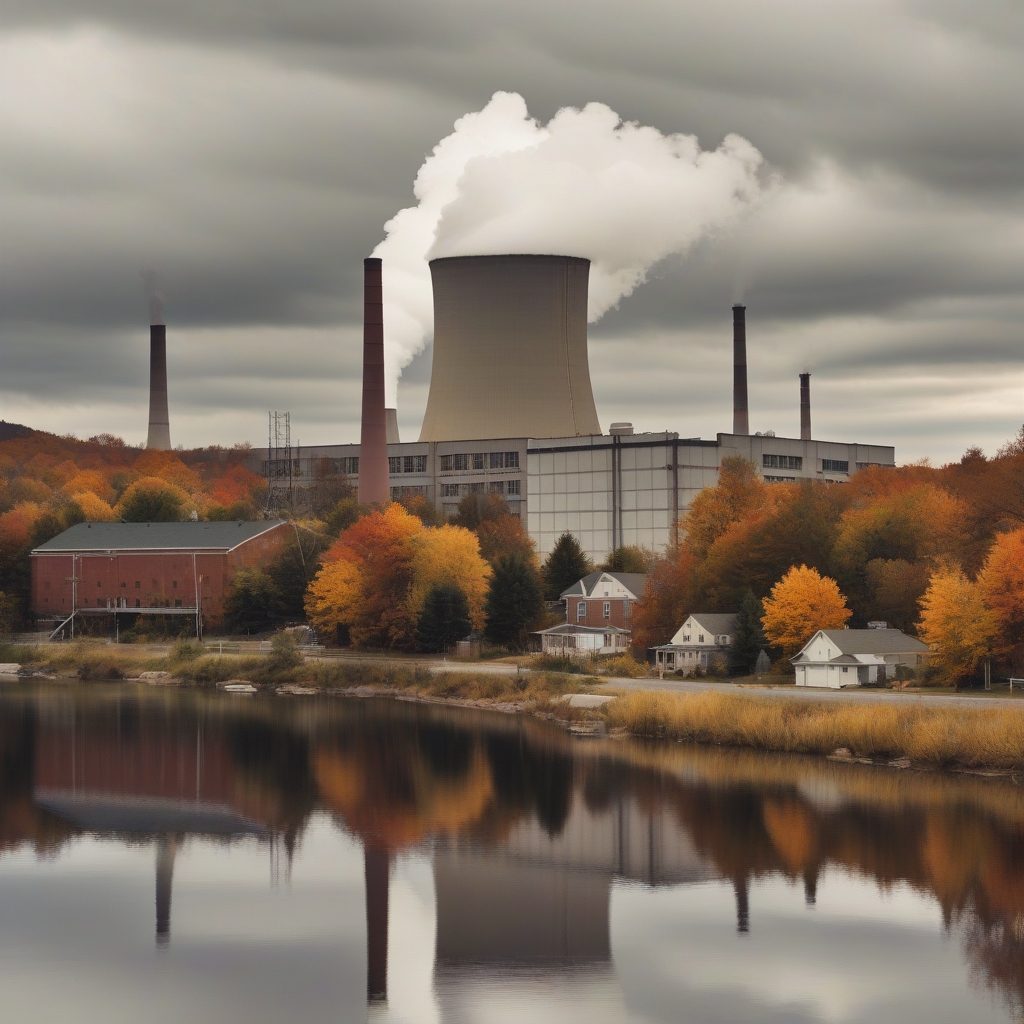Nuclear Energy Debate: Local Support Grows for Restarting TMI Plant
The Legacy of Three Mile Island
The Three Mile Island (TMI) nuclear plant has a storied history that continues to spark passionate debate among residents and stakeholders alike. Located in Pennsylvania, the plant famously experienced a partial meltdown in 1979, marking the most significant accident in the history of American commercial nuclear power. The incident left a profound impact on both national energy policy and local trust in nuclear technology. Yet, decades later, many of TMI’s neighbors are showing increasing support for restarting the plant, pointing to the potential benefits outweighing the historical risks.
Why Locals Are Advocating for a Restart
With growing concerns over climate change and the need for sustainable energy solutions, nuclear power is regaining its reputation as a viable alternative to fossil fuels. Local residents and environmental advocates have cited several key advantages in their push to restart the TMI plant:
- Renewable and reliable energy source: Unlike solar and wind energy, which depend on weather conditions, nuclear power can provide consistent, round-the-clock energy.
- Reduction in carbon emissions: Nuclear power plants produce zero emissions during operation, offering a cleaner alternative to coal and natural gas.
- Economic benefits: Restarting the station could create jobs and stimulate the local economy, providing both short-term construction roles and long-term operational positions.
- Energy independence: Utilizing a domestic energy source allows the United States to reduce its reliance on imported foreign oil and gas.
Safety Concerns and Opposition
However, not everyone is in favor of bringing TMI back online. Safety remains a paramount concern, especially given the plant’s unfortunate history. Opponents argue that:
- Risk of accidents: Despite advancements in technology, the fear of another nuclear accident similar to the 1979 incident lingers among residents and stakeholders.
- Waste disposal issues: Nuclear power plants generate radioactive waste, and finding long-term, sustainable solutions for its disposal remains a significant challenge.
- High operational costs: The costs associated with restarting and safely operating a nuclear power plant are substantial, which could lead to higher electricity prices for consumers.
- Proliferation risks: Some fear that increased use of nuclear technology could potentially contribute to the proliferation of nuclear weapons.
Government and Regulatory Stance
The debate over TMI isn’t confined to local voices; state and federal agencies also play critical roles in this decision. The Nuclear Regulatory Commission (NRC) would need to approve any plan to restart the plant, ensuring that it meets current safety and operational standards. Historically, the NRC has been thorough in its assessments, often leading to high regulatory costs and extended timelines.
Pennsylvania’s state government also harbors varying views. Some lawmakers advocate for nuclear energy as part of a balanced and clean energy portfolio, while others are wary of the risks and costs involved. In regions like Pennsylvania where natural gas is abundant, there is an ongoing debate on whether to invest further in nuclear power or capitalize on existing fossil fuel resources.
Technological Advancements in Nuclear Energy
One of the compelling arguments for restarting TMI is the progress made in nuclear technology since its closure. Newer generations of nuclear reactors, often termed “Third and Fourth Generation Reactors,” offer numerous safety and efficiency improvements:
- Safety features: Modern reactors include passive safety systems that can automatically shut down in case of anomalies, reducing the risk of human error.
- Smaller footprint: Innovative designs like Small Modular Reactors (SMRs) require less land and water, making them more adaptable to various locations.
- Waste reduction: Advanced reactors are more efficient and produce less waste compared to older models. Some even have the capability to recycle spent fuel, mitigating the disposal issue.
The Role of Public Opinion
The final determining factor in the debate over TMI’s future may well be public opinion. Community outreach and education campaigns are essential to address the fears and misconceptions surrounding nuclear energy. Various community forums, public hearings, and educational programs could help build trust, ensuring that residents feel involved and informed in the decision-making process.
Surveys and polls indicate a growing shift in awareness and acceptance of nuclear power as a necessary component of a sustainable future. Younger generations, in particular, are more open to nuclear energy, viewing it as an essential remedy in the fight against climate change.
A Balanced Approach
While the debate around restarting TMI is complex and multifaceted, a balanced approach may offer the most viable path forward. Integrating nuclear energy into a diverse energy portfolio that includes renewables like wind, solar, and hydroelectric power can provide a robust and sustainable energy framework.
Key considerations for a balanced approach:
- Invest in both nuclear and renewable energy projects to diversify and balance energy sources.
- Maintain stringent safety standards and continuous monitoring to ensure public safety.
- Promote technological advancements and innovation to make nuclear power safer and more efficient.
- Foster open dialogue and community involvement to build trust and transparency.
Conclusion
The discussion around restarting the Three Mile Island nuclear plant encapsulates the broader, ongoing debate about the role of nuclear energy in America’s future. With strong local support, evolving technology, and increasing environmental concerns, the potential benefits of nuclear power are indeed compelling. However, safety, economic feasibility, and waste disposal remain critical challenges that must be meticulously addressed. Through balanced, informed decision-making and community involvement, it is possible to navigate these complexities and contribute meaningfully to a sustainable energy future.

Leave a Reply